
The SSD Catchup - TRIM
As part of our testing methodology for SSDs, we test them fresh out of the box, and then fill the drive completely, before deleting the contents and running the TRIM command which cleans up NAND and should avoid read/modify/write based performance dips. After a ten minute wait for the drive to execute the TRIM command and/or any of its own garbage collection processes, we then re-test each drive to assess it's ability to maintain performance over time.The SSD 840 Pro's performance degraded noticeably having been filled, but only in one of our tests. Sequential write speeds in AS-SSD dropped from 498MB/sec to 444MB/sec, a ten per cent drop. However, in Crystal Disk Mark there was no such reduction, with performance otherwise remaining as we found it when first testing the drive in random 4K tests. While not perfect, it's still a very resilient drive then.
The SSD 840 and 840 Pro both impress when it comes to read speeds
The SSD 840 suffered no such issues, with it's performance the same even after 327GB of host writes. The OCZ Vector also proved to be very resilient, with no difference in performance when testing the drive out of the box and after a long day of benchmarking.
Like the SSD 840 Pro, The Corsair Neutron GTX also demonstrated a slight dip to sequential write speeds after heavy use. Its AS-SSD sequential write speed dropped from 448MB/sec to 417MB/sec, a seven per cent drop. In Crystal Disk mark this drop to sequential write speed was only 12MB/sec.
The SSD Catchup - Conclusion
As if judging one SSD in the current market as hard, now we've got four to cast our discerning eyes over. Certainly when it comes to reliability, all four have impressed us during our time using them. While the SSD 840 Pro's performance dropped a little bit following heavy use in one benchmark, its speeds were otherwise as they were when it first came out of the box. The SSD 840, Neutron and Vector delivered even more reliable performance, with minimal reduction in performance.
OCZ's Vector is incredibly quick and, along with the SSD 840 Pro, sets a new standard for SSD performance
In the performance stakes, it's clear the SSD 840 Pro and Vector are in a league of thier own, particularly when it comes to multi-threaded random writes; in both AS-SSD's 64 queue-depth and Crystal Disk Mark's 32-queue depth tests they dominated the field. The SSD 840 Pro has an edge when it comes to single queue-depth random read speeds though, allowing it to trump the competition in PCMark 7's application load and gaming tests. The Vector proved a little faster when it came to boot times though, and overall we struggle to separate them when it comes to performance; both are incredibly quick.
Corsair's use of Toshiba Toggle NAND means the Neutron GTX is expensive
The TLC equipped SSD 840 also accounted well for itself, with the Samsung MDX controller fuelling its excellent read performance. It's use of TLC limits its sequential speeds greatly however, but it can still compete with Crucial's MLC NAND equipped M4 in this regard.
In comparison, the Corsair Neutron GTX is a little disappointing. It's simply not as fast as either the SSD 840 Pro or the Vector in either sequential or random performance, in some cases by a hefty margin. Of course, it's still very quick, but our tests have shown that it's competitors are quicker.
Pricing correct as of 07/01/2013
As you can see from the above graph (we felt the article needed just one more), the Neutron GTX 480GB is also painfully expensive on a £/GB basis for the storage on offer thanks to its 12.8 per cent over-provision. Corsair still has to pay for 512GB of NAND after all, even if you only get 447.13GB of formatted capacity.
This graph also shows just how competitive both of Samsung's drives are on pricing. The TLC equipped SSD 840 250GB is cheaper per GB than many of the other competing SATA 6Gbps 256GB SSDs on the market (special offers not withstanding), while the SSD 840 Pro 256GB is also that little bit cheaper than the OCZ Vector. We've spoken before about the difficulty of differentiating between a fast SSD and a super-fast SSD, but when it comes to cold hard cash, the difference is much easier to see.
In the end, all four of these drives have proven to be capable and reliable drives in their own right, with the Vector and SSD 840 Pro both shifting SSD performance forward, while the TLC equipped SSD 840 does the same for value. Given their highly competitive pricing though, its the SSD 840 and SSD 840 Pro which stand-out, with the Pro offering top-end performance and the standard 840 excellent value.
Samsung SSD 840 Pro 256GB

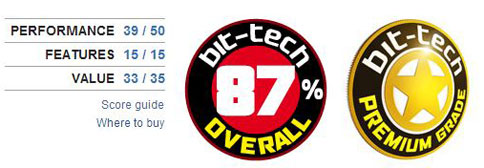
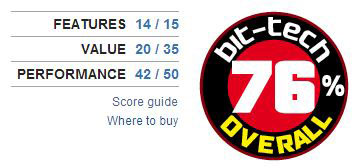
-
Performance47 / 50
-
Features15 / 15
-
Value23 / 35


MSI MPG Velox 100R Chassis Review
October 14 2021 | 15:04

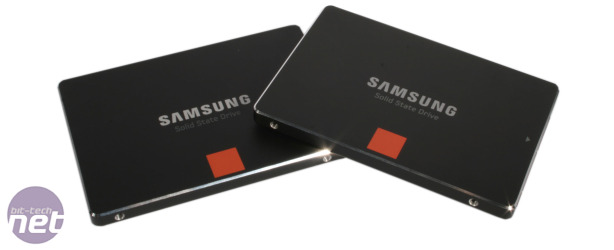
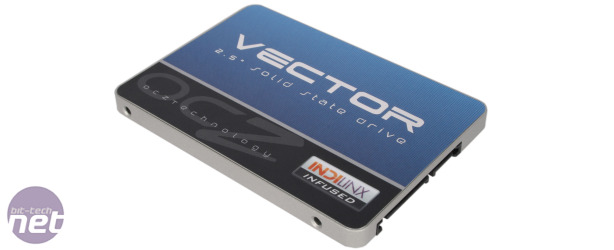
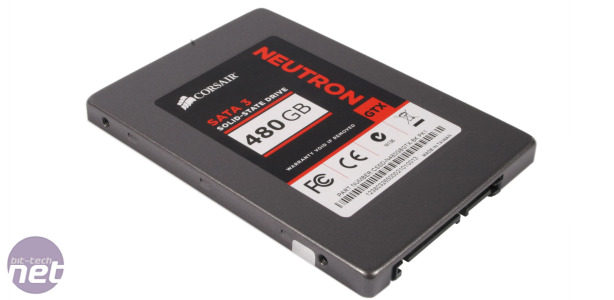







Want to comment? Please log in.